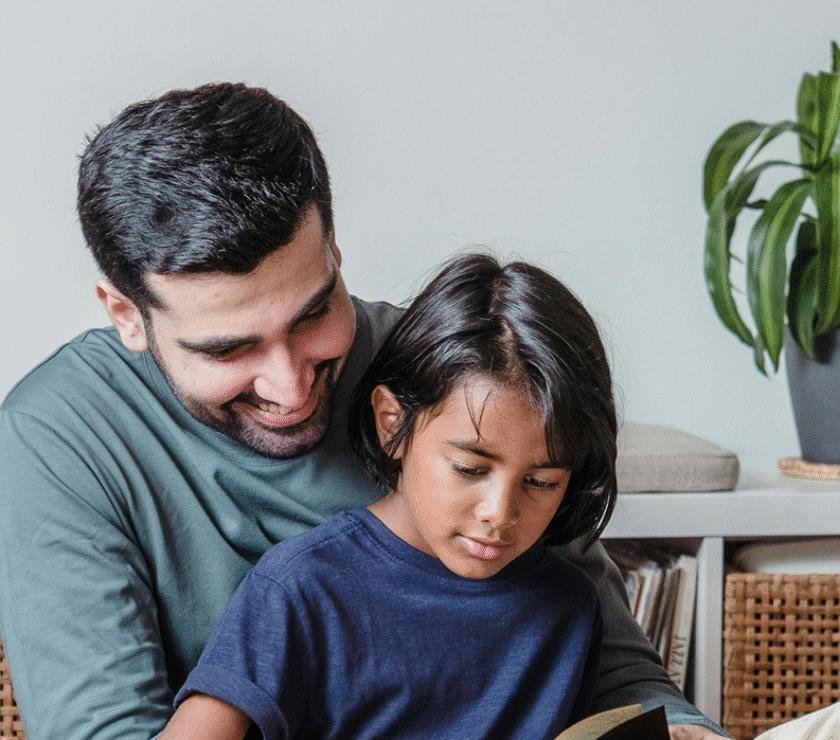Parenting: Finding Calm, Connection, and Confidence
Parenting has always been described as one of life’s greatest joys—but let’s be honest, it’s also one of its greatest challenges.
From sleepless nights with babies to teenage struggles, every stage brings new hurdles. And while no generation has ever had it “easy,” raising children in today’s fast-changing world feels more complex than ever before.
Children today grow up in an environment very different from the one most parents experienced. They are surrounded by technology, influenced by social media, and exposed to academic and social pressures at a much earlier age. While it is tough to be a child in this era, it is often even tougher to be a parent.
Parents are expected to provide financial security, emotional safety, educational support, moral guidance, and healthy boundaries—all while managing careers, relationships, and personal well-being.
Add the constant comparisons on social media (the so-called “perfect parents” who always seem to get it right), and many mothers and fathers are left feeling exhausted, guilty, or unsure of themselves.
Why Parenting Feels Harder Today
Every generation has had its challenges, but modern parenting comes with unique pressures:
- Technology and screen time: Parents constantly negotiate how much access to gadgets, games, and social media is healthy. Too little, and children may feel left out; too much, and it affects sleep, concentration, and emotional well-being.
- Academic competition: Children are pushed into structured learning and exams earlier than before. Parents often feel responsible for their child’s achievements, which creates stress at home.
- Relationships and independence: Friendships change as people move cities or follow different paths. Romantic relationships become more serious, but also more complicated. At the same time, family expectations may feel heavy, especially when parents and young adults disagree about choices.
- Changing family dynamics: With nuclear families, many parents lack the support systems that extended families once provided. This leaves them feeling isolated in their parenting journey.
- Social media pressure: Comparing one’s real struggles with others’ “highlight reels” makes many parents feel inadequate or guilty.
- Children’s emotional needs: With rising awareness of mental health, parents want to do better—but often feel unequipped to handle their child’s anxiety, tantrums, or withdrawal.
Common Struggles Parents Face
- Behavioral challenges: Tantrums, defiance, and school-related issues can feel overwhelming.
- Communication gaps: Children may withdraw, leaving parents unsure of how to reach them.
- Parental guilt: Even when giving their best, parents often feel they are not doing “enough.”
- Balancing roles: Managing work, household duties, and parenting often leaves little time for rest or personal care.
- Burnout: The constant demand to be available, patient, and understanding can drain emotional energy.
These struggles are not signs of failure. They are signs that parenting is demanding, and every parent needs support.
While no generation has ever had it “easy,” raising children in today’s fast-changing world feels more complex than ever.
How Guidance and Support Can Help Parents
- Practical tools for everyday life: Simple strategies—like consistent routines, clear communication, and age-appropriate expectations—help reduce conflict at home. For example, setting screen time limits together with children (instead of imposing them suddenly) creates cooperation rather than resistance.
- Emotional support for parents: Parenting can feel isolating. Having a safe space to share frustrations, worries, and doubts helps parents feel less alone. Just knowing that other parents face the same struggles can be deeply reassuring.
- Strengthening parent–child bonds: When parents learn to listen without judgment, children feel safer to express themselves. This builds trust, which reduces conflict and increases cooperation.
- Encouraging self-care: Parents often forget that their own well-being directly affects their family. A tired, stressed, or resentful parent cannot give their best. Prioritizing rest, hobbies, or even quiet time isn’t selfish—it’s necessary.
Moving From Pressure to Presence
One of the biggest shifts modern parents can make is moving away from the pressure to “get it right” toward the intention of “being present.”
- From controlling to guiding: Children don’t need parents who solve every problem for them. They need parents who help them learn how to think, decide, and cope.
- From guilt to growth: Every parent makes mistakes. What matters is the willingness to repair, adapt, and keep learning.
- From comparison to connection: Each family is unique. Instead of comparing your journey with others, focus on building connection in your own home.
Practical Reminders for Parents
- Set aside 10–15 minutes of undivided attention daily with your child (no screens, no multitasking). This small act strengthens connection.
- Establish predictable routines—they give children security and reduce daily battles.
- Model the behavior you want to see: kindness, patience, respect. Children learn more from what parents do than what they say.
- Allow mistakes—both yours and your child’s. Apologizing and forgiving openly teaches resilience.
- Remember: self-care is family care. A calmer parent creates a calmer home.
Final Thoughts
Parenting in today’s world is complex, but it doesn’t have to feel impossible. The journey is not about striving for perfection—it’s about being real, consistent, and compassionate. Children thrive not because parents never make mistakes, but because parents are willing to learn, adapt, and love through it all.
If you sometimes feel exhausted, guilty, or lost, know that you are not alone. Every parent struggles. What matters most is the effort you put in, the love you give, and the presence you bring.
Remember that parenting is less about raising a “perfect” child and more about creating a relationship of trust, connection, and safety. When you focus on this, you’ll find that both you and your child can grow together—with confidence, calm, and resilience.


